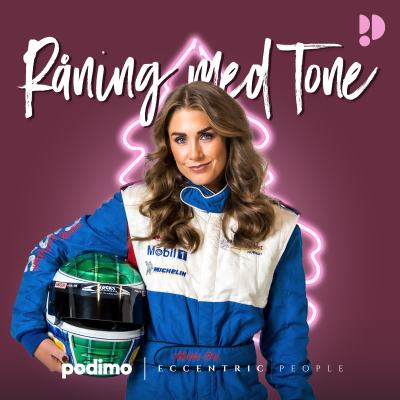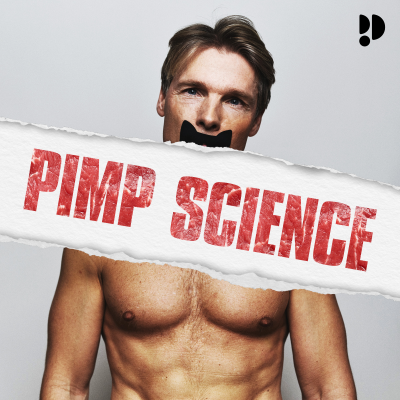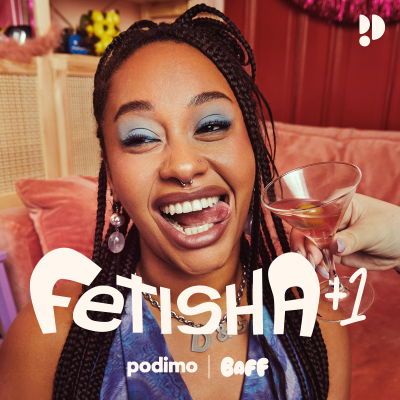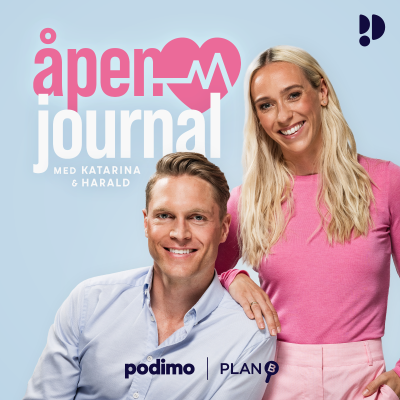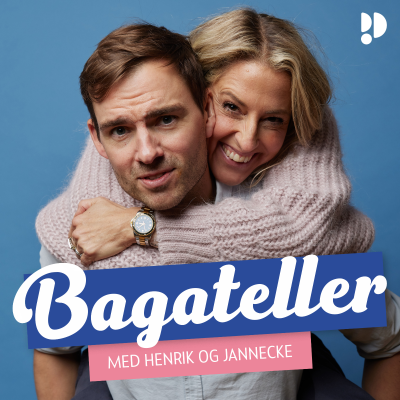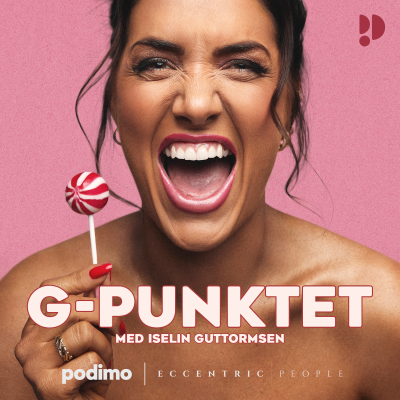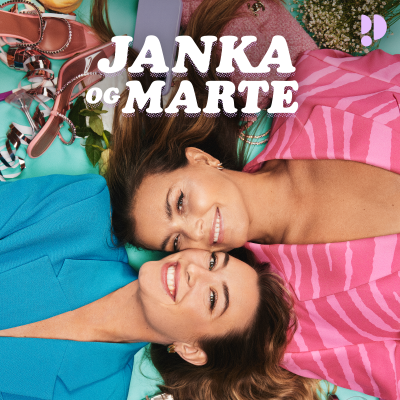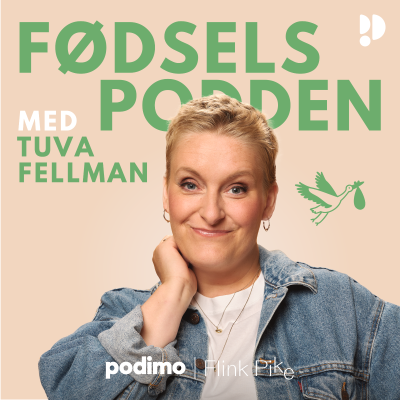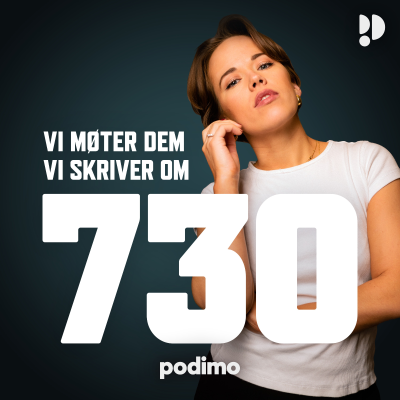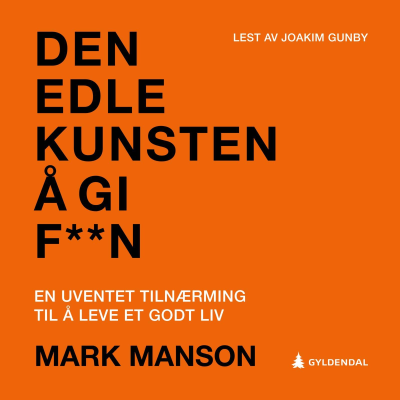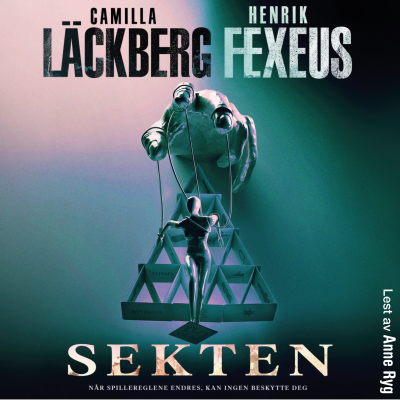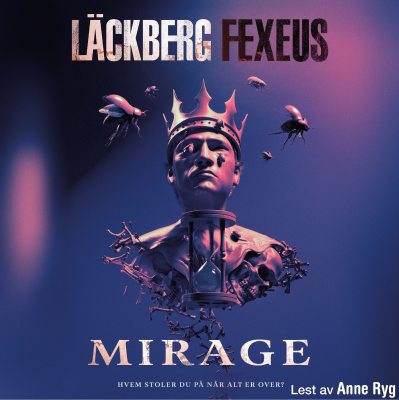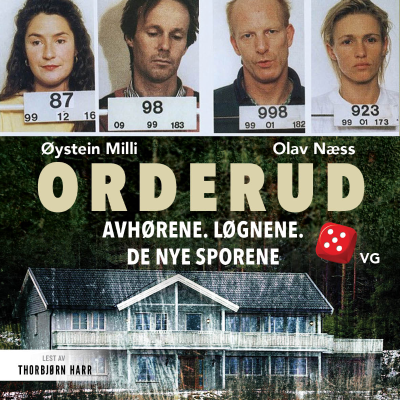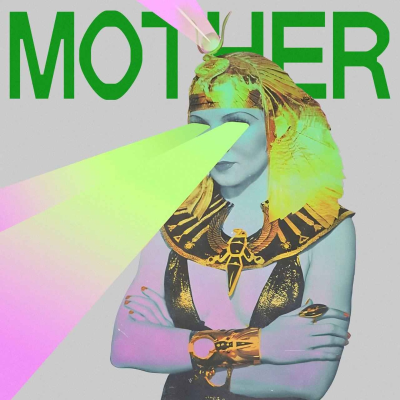
MOTHER-podcast with Karina Vazirova
Podkast av MOTHER-podcast
Denne podkasten er gratis å lytte på alle podkastspillere og i Podimo-appen uten abonnement.
Alle episoder
20 EpisoderWhat happens in the brain during menstrual cycles, post-partum and menopause? Meet Emilė Radytė, the founder of Samphire Neuroscience, a technology company creating neuroscientific solutions for women. Their first product Nettle uses brain stimulation to treat period pain non-invasively. In this episode, Emilė brings the neuroscientific perspective to the show and explains what happens in the brain as the female body undergoes key physical transformations. Enjoy! Want to become a MOTHER-sponsor and create some magic together? Reach out to us: https://shorturl.at/0RHLM [https://shorturl.at/0RHLM] 00:00) Intro (01:10) Insights from studying depression and its link to the menstrual cycle (02:20) Neuroscience 101: How the brain operates chemically and electrically (04:40) Phases of the menstrual cycle (12:30) Menstrual Phase: Brain activity and the role of pain sensitivity (18:50) Follicular Phase: Creativity, dopamine, and social engagement (20:45) Ovulation: Hormonal peaks and Mittelschmerz (27:50) Luteal Phase: Emotional introspection and the influence of progesterone (33:20) Alpha waves in the luteal phase (37:50) Brain stimulation technology & Nettle (42:50) Applications in postpartum depression and menopause (45:40) Consciousness and the brain (47:10) Lessons about life, nature and the universe Follow Emilė: Linkedin - https://www.linkedin.com/in/eradyte/ Instagram - https://www.instagram.com/radytee/ Samphire Neuroscience - https://samphireneuro.com/ Links mentioned: Cycle-Brain Guide - https://www.samphireneuro.com/nettle/science/publications/cycle-brain-guide "Women’s health research lacks funding – these charts show how" - https://www.nature.com/immersive/d41586-023-01475-2/index.html ---------------------------------------- Hosted on Acast. See acast.com/privacy [https://acast.com/privacy] for more information.
Imagine a digital twin for a pregnancy: a model based on the unique geometry of a mother's uterus, capable of anticipating potential complications. Michelle Oyen, PhD, a materials scientist and Associate Professor of Biomedical Engineering at Wayne State University, is bringing the engineering perspective to pregnancy. She explains that many aspects of pregnancy involve forces—rupturing, pushing, growing, stretching. These are all mechanical events. If we can describe pregnancy in engineering terms, we can model it. Collaborating with other visionaries in the field, Michelle is working on developing the first-ever Virtual Pregnancy model. Enjoy! Want to become a MOTHER-sponsor and create some magic together? Reach out to us: https://shorturl.at/0RHLM [https://shorturl.at/0RHLM] (00:00) Intro (04:29) Why pregnancy is a mechanical event (06:35) How pregnancy is similar to running a marathon (08:11) How female anatomy is designed for pregnancy (10:20) The female immune system (12:10) Why the placenta is so misunderstood (15:28) Digital twins & Virtual Pregnancy models (25:56) Applying engineering principles to menopause (31:26) Key challenges to creating artificial womb technology (37:53) What has studying pregnancy taught Michelle about life, nature, and universe Connect with Michelle: Michelle's profile - https://engineering.wayne.edu/profile/hx4827 Michelle's LinkedIn - https://www.linkedin.com/in/michelle-oyen/ Michelle's Twitter - https://x.com/michelleoyen Links mentioned: Kristin M. Myers - https://kristinmyerscolumbia.com/ "Womb: The Inside Story of Where We All Began" book by Leah Hazard ---------------------------------------- Hosted on Acast. See acast.com/privacy [https://acast.com/privacy] for more information.
Can better sex education and values transform our culture? Meet Cindy Gallop, a legendary advertising executive, the founder of MakeLoveNotPorn, and one of the most influential entrepreneurs in SexTech today. At MakeLoveNotPorn, Cindy's mission is to help end rape culture by showing how wonderful great, consensual, communicative sex is in the real world, and role-modelling good sexual values and behaviour. Her next milestone is to tackle sex education by building age-appropriate sex content. Along the way, she is going to overcome every challenge the SexTech industry faces. This isn't just an episode about the future of SexTech. It's a masterclass in disruptive business thinking. Enjoy! Want to become a MOTHER-sponsor and create some magic together? Reach out to us: https://shorturl.at/0RHLM [https://shorturl.at/0RHLM] (00:00) Intro (01:10) The unexpected start of Make Love Not Porn (02:30) Cindy’s viral TED Talk that shocked audiences (06:00) The importance of breaking down society’s shame around sex (08:40) Cindy’s advice for parents (11:00) A new model for open, age-appropriate sex ed (14:10) The "hierarchy of acceptability" in SexTech funding (16:20) How embracing sexuality can unlock creativity (19:00) Cindy on living happily outside traditional norms (23:40) The perks and pitfalls of dating younger men (25:30) Why Cindy may need to create a sex-positive bank (28:40) A bold new platform for ads that people actually want to watch (31:20) How AI could help shift consent culture in media (34:10) Why female entrepreneurs should aim to make serious money Links: MakeLoveNotPorn - https://makelovenotporn.tv/ The WeFunder Campaign - https://wefunder.com/makelovenotporn (invest at your own risk) Cindy's Instagram - https://www.instagram.com/cindygallop Cindy's LinkedIn - https://linkedin.com/in/cindygallop Cindy's TED talk - https://www.ted.com/talks/cindy_gallop_make_love_not_porn ---------------------------------------- Hosted on Acast. See acast.com/privacy [https://acast.com/privacy] for more information.
What happens inside a psychedelic retreat? Meet Dr. Lauren Macdonald - a psychiatry doctor, group retreat facilitator and psychedelic therapy guide. She worked with patients in psychedelic clinical trials at Imperial College London and now leads psychedelic retreats around the world. Her approach includes integrating traditional and Western medicine. In this episode, you'll hear what happens at The Reconnection, Lauren's bi-annual retreat for women. Enjoy! Want to become a MOTHER-sponsor and create some magic together? Reach out to us: https://shorturl.at/0RHLM [https://shorturl.at/0RHLM] (00:00) Intro (01:20) Weaving psychedelics with modern medicine (08:20) What is a psychedelic experience like (14:00) Inside "The Reconnection" retreat (18:40) The reason women come to the retreats (20:00) What does being an "embodied" person mean? (23:30) Psychedelics and Women's Health (29:50) Psychospiritual approach to medicine (34:30) Insights from women who attend psychedelic retreats (41:00) Neuroplasticity and post-retreat glow (45:10) Disclaimers, important words of caution (50:30) Lessons from psychedelic work Connect with Lauren: https://drlaurenmacdonald.com/ [https://drlaurenmacdonald.com/] Instagram - https://www.instagram.com/drlaurenmacdonald [https://www.instagram.com/drlaurenmacdonald] LinkedIn - https://www.linkedin.com/in/dr-lauren-macdonald-3b2298b9/ [https://www.linkedin.com/in/dr-lauren-macdonald-3b2298b9/] Links mentioned: Roland R. Griffiths, PhD - https://hopkinspsychedelic.org/griffiths [https://hopkinspsychedelic.org/griffiths] Laura Wilkes (co-creator of The Reconnection) - https://www.instagram.com/laurajwilkes_/ [https://www.instagram.com/laurajwilkes_/] ---------------------------------------- Hosted on Acast. See acast.com/privacy [https://acast.com/privacy] for more information.
What would it take to create an Artificial Ovary? Meet Ariella Shikanov, professor of biomedical engineering at the University of Michigan. Earlier this year, her team at Shikanov Lab made history when they created a new Map of the Ovary. With the support of the Chan Zuckerberg Initiative, Ariella's team mapped gene expression in various regions of the ovary, marking a major milestone in our understanding of reproductive biology. Enjoy! Want to become a MOTHER-sponsor and create some magic together? Reach out to us: https://shorturl.at/0RHLM (00:00) Intro (03:00) How ovaries work: eggs, hormones, and follicles explained (06:10) Puberty and how the brain controls your ovaries (07:30) How your ovaries talk to other organs (09:00) Key findings from Map of The Ovary research (12:00) Oncofertility: preserving fertility during cancer treatment (15:30) The challenge and hope of freezing ovarian tissue (17:50) Delaying menopause: new approaches to keep ovaries functioning longer (21:00) The future of artificial ovaries and extending hormone production (24:00) How the immune system affects ovarian health, PCOS, and endometriosis (28:00) Women’s immune health and its role in reproduction (31:00) Ethical questions in ovarian research (35:00) How delaying menopause could improve quality of life (37:50) How Ariella’s work is shaping the future of women’s health Links: Ariella's X Profile - https://x.com/ariellashikanov Shikanov Lab at University of Michigan - Research overview, publications, and projects related to preserving ovarian function and artificial ovary development. https://www.shikanov.bme.umich.edu [https://www.shikanov.bme.umich.edu] Map of the Human Ovary - Spatial Atlas Research - A detailed explanation of the map created by Shikanov Lab, including its implications for fertility research. https://news.engin.umich.edu/articles/spatial-atlas-of-the-human-ovary Human Cell Atlas: Ovarian Map - A cellular atlas of the human ovary using spatial transcriptomics and single-cell sequencing data. https://explore.data.humancellatlas.org/projects/f598aee0-d269-4036-90e9-d6d5b1c84429 [https://explore.data.humancellatlas.org/projects/f598aee0-d269-4036-90e9-d6d5b1c84429] ---------------------------------------- Hosted on Acast. See acast.com/privacy [https://acast.com/privacy] for more information.
Tilgjengelig overalt
Lytt til Podimo på telefonen, nettbrettet, datamaskinen eller i bilen!
Et univers av underholdning på lyd
Tusenvis av lydbøker og eksklusive podkaster
Ingen annonser
Ikke kast bort tid på å lytte til annonser når du lytter til Podimos innhold.
